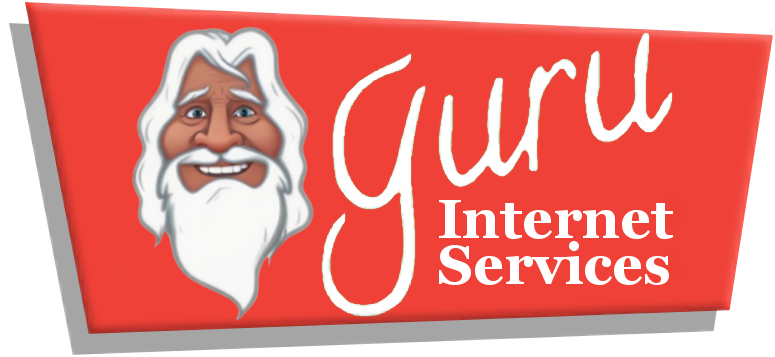In today’s digital landscape, internet marketing techniques are essential for any business aiming to thrive. With the rapid evolution of technology, traditional marketing methods have taken a backseat, giving way to innovative online strategies that promise greater reach and engagement. The digital arena offers a plethora of tools and platforms to connect with your target audience, making it vital to understand the various facets of internet marketing.
Internet marketing, also known as online marketing or digital marketing, encompasses a wide range of strategies and tactics. These include search engine optimization (SEO), content marketing, social media marketing, email marketing, and more. Each technique plays a crucial role in driving traffic, generating leads, and ultimately, boosting sales.
Whether you are a startup or an established business, staying ahead of digital marketing trends is crucial for your success. By implementing effective internet marketing techniques—such as creating visually stunning websites and leveraging social media platforms—you can make a significant impact. Understanding these trends and techniques not only keeps you competitive but also enables you to connect with your audience in meaningful and lasting ways..
Ready to elevate your business with cutting-edge internet marketing strategies? Get a quote at https://guru-is.com/#contact and let us help you achieve absolute web success!
Importance of Search Engine Optimization

Search Engine Optimization, or SEO, is a fundamental component of any robust internet marketing strategy. SEO involves optimizing your website and its content to rank higher in search engine results pages (SERPs), thereby increasing your site’s visibility to potential customers. When done correctly, SEO can drive organic traffic to your website, reduce acquisition costs, and improve conversion rates.
The importance of SEO cannot be overstated. With millions of websites competing for attention, appearing on the first page of search results can significantly enhance your chances of attracting visitors. According to studies, the first page of Google captures 71% of search traffic clicks, underscoring the necessity of achieving high rankings.
Effective SEO is a blend of on-page and off-page optimization techniques. On-page SEO focuses on optimizing individual web pages, including keyword usage, meta descriptions, and internal linking. Off-page SEO, on the other hand, involves external factors such as backlinks and social signals. Both aspects are crucial for improving your site’s authority and relevance in the eyes of search engines.
Moreover, SEO is not a one-time effort but an ongoing process. Search engine algorithms are continually evolving, and staying updated with the latest trends and best practices is essential for maintaining and improving your rankings. By investing in SEO, you can ensure that your website remains competitive and continues to attract organic traffic over the long term.
Effective Content Marketing Strategies
Content marketing is a crucial element in the arsenal of internet marketing techniques. It involves creating and distributing valuable, relevant, and consistent content to attract and engage a clearly defined audience. Effective content marketing not only drives traffic but also builds trust and authority, ultimately leading to increased conversions and customer loyalty.
One of the most effective content marketing strategies is understanding your audience. By developing buyer personas, you can tailor your content to address the specific needs, challenges, and preferences of your target market. This personalized approach makes your content more relatable and engaging.
Another essential strategy is maintaining a content calendar. Consistency is key in content marketing, and a well-planned calendar ensures that you are regularly publishing high-quality content. This not only keeps your audience engaged but also signals to search engines that your site is active and relevant.
Leveraging different content formats can also enhance your content marketing efforts. From blog posts and articles to videos, infographics, and podcasts, diversifying your content types can cater to different audience preferences and increase your reach. Additionally, incorporating SEO best practices into your content, such as keyword optimization and internal linking, can further boost your visibility in search engine results.
Lastly, promoting your content through various channels is vital for maximizing its impact. Social media, email marketing, and influencer partnerships can amplify your content’s reach and drive more traffic to your website. By integrating these strategies, you can create a cohesive and effective content marketing plan that supports your overall business objectives.
Leveraging Social Media Platforms

In the realm of internet marketing techniques, leveraging social media platforms is indispensable. Social media not only provides a space to connect with your audience but also offers various tools and analytics to optimize your marketing efforts. To harness the full potential of social media, it’s essential to develop a comprehensive strategy tailored to each platform’s unique features and user demographics.
First, identify which social media platforms are most popular among your target audience. Whether it’s Facebook, Instagram, Twitter, LinkedIn, or TikTok, understanding where your audience spends their time will help you focus your efforts more effectively. Each platform has its own strengths: Instagram is great for visual storytelling, LinkedIn excels in professional networking, while Twitter is ideal for real-time updates and conversations.
Creating engaging and shareable content is another cornerstone of a successful social media strategy. This can include a mix of posts, such as promotional content, behind-the-scenes looks, user-generated content, and interactive polls or quizzes. The goal is to foster a sense of community and encourage user interaction, which can lead to increased brand loyalty and organic reach.
Utilizing social media analytics tools can help you track the performance of your posts and campaigns. Metrics such as engagement rates, click-through rates, and follower growth can provide valuable insights into what is working and what needs adjustment. By regularly analyzing this data, you can make informed decisions and continually refine your strategy.
Finally, don’t underestimate the power of social media advertising. Paid campaigns can significantly boost your visibility and reach a broader audience. With advanced targeting options, you can ensure that your ads are seen by users who are most likely to be interested in your products or services. Combining organic and paid strategies can create a robust social media presence that drives real business results.
Email Marketing Best Practices

Email marketing remains one of the most effective internet marketing techniques for reaching and engaging your audience. However, to maximize its potential, it’s crucial to follow some best practices. A well-executed email marketing campaign can lead to higher open rates, click-through rates, and ultimately, conversions.
First and foremost, building a quality email list is essential. Rather than purchasing email lists, focus on organically growing your list by offering valuable content or incentives in exchange for email sign-ups. This ensures that your subscribers are genuinely interested in your brand, leading to higher engagement.
Once you have a robust list, segmenting your audience can make a significant difference. By categorizing subscribers based on their behaviors, preferences, or demographics, you can tailor your messages to be more relevant to each group. Personalized emails tend to perform better as they address the specific needs and interests of the recipient.
The design and content of your emails also play a pivotal role in their success. Ensure your emails are visually appealing, mobile-friendly, and easy to read. Include compelling subject lines to capture attention and concise, engaging content to maintain it. Incorporate clear calls-to-action (CTAs) that guide recipients on the next steps you want them to take.
Regularly testing and analyzing your email campaigns is another best practice. A/B testing different elements such as subject lines, email copy, and CTAs can provide insights into what resonates best with your audience. Use this data to continually refine your approach and improve your results.
Lastly, maintain compliance with email marketing regulations such as the CAN-SPAM Act or GDPR. Provide easy opt-out options and respect the privacy of your subscribers. Building trust through transparency and respect can enhance your brand’s reputation and foster long-term relationships with your audience.
Utilizing Pay-Per-Click Advertising

Pay-Per-Click (PPC) advertising is a powerful tool within the realm of internet marketing techniques that can drive immediate traffic and conversions. By utilizing platforms such as Google Ads or Bing Ads, businesses can display ads to users actively searching for specific keywords related to their products or services.
One of the main advantages of PPC advertising is its ability to provide instant visibility. Unlike organic search engine optimization (SEO), which can take time to yield results, PPC campaigns can generate traffic as soon as they are launched. This makes it an ideal method for promotions, new product launches, or driving traffic to time-sensitive offers.
To maximize the effectiveness of your PPC campaigns, thorough keyword research is essential. Identify high-intent keywords that are relevant to your business and have a good balance of search volume and competition. Using tools like Google Keyword Planner can help you uncover valuable keyword opportunities.
Crafting compelling ad copy is another critical element of successful PPC advertising. Your ads should be clear, concise, and include a strong call-to-action (CTA). Highlight your unique selling propositions (USPs) to differentiate your ads from competitors and entice users to click.
It’s also important to continuously monitor and optimize your PPC campaigns. Track key performance indicators (KPIs) such as click-through rates (CTR), conversion rates, and cost-per-click (CPC) to assess the effectiveness of your ads. Regularly adjusting bids, testing different ad variations, and refining your targeting can lead to better performance and a higher return on investment (ROI).
Lastly, leveraging remarketing strategies can enhance your PPC efforts. By targeting users who have previously visited your website but did not convert, you can re-engage potential customers and encourage them to complete their purchase. Remarketing campaigns often have higher conversion rates as they target users already familiar with your brand.
Ready to take your internet marketing to the next level? Get a quote at https://guru-is.com/#contact and let us help you create impactful PPC campaigns that drive results!


